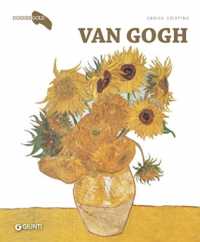- ホーム
- > 洋書
- > ドイツ書
- > Humanities, Arts & Music
- > Music
Description
(Text)
Kurt Weills Songspiel Mahagonny entstand 1927 im Auftrag des Festivals "Deutsche Kammermusik" in Baden-Baden und wurde ebendort uraufgeführt. Als Textgrundlage diente Bertolt Brechts Gedichtband "Hauspostille", aus dem Weill ein Bühnenwerk für ein zehnköpfiges Ensemble und sechs Sänger formte. Das Premierenpublikum zeigte sich von der Inszenierung tief gespalten, doch waren sich alle einig in Bezug auf Qualität und innovative Kraft der Musik Weills. Brecht und Weill entwickelten das Mahagonny-Songspiel weiter und nur drei Jahre später erlebte eine der bahnbrechendsten Opern des 20. Jahrhunderts ihre Uraufführung: "Aufstieg und Fall der Stadt Mahagonny". Dieser neu herausgegebene Klavierauszug folgt dem Text der kritischen Ausgabe, erschienen im Rahmen der Kurt Weill Edition (Series I, Volume 3). Die englische Übersetzung stammt von Michael Feingold. Orchestermaterial ist leihweise erhältlich.
(Table of content)
Vorwort · Preface · 1. I. Mahagonny-Song / Kleiner Marsch · 2. Alabama-Song / Marsch / Vivace · 3. II. Mahagonny-Song / Vivace assai · 4. Benares-Song / Sostenuto (Choral) · 5. III. Mahagonny-Song / Vivace assai · 6. Finale · Appendix: Erste Fassung des Finales (First Version of Finale)
(Text)
Kurt Weill's Songspiel Mahagonny was commissioned by the music festival "Deutsche Kammermusik" in Baden-Baden and premiered in 1927. The poetry collection "Hauspostille" (domestic breviary) by Bertold Brecht served as a textual basis for the newly composed musical mini-drama that requires an ensemble of ten instruments and six singers. The audience's reaction at the premiere was divided, yet everybody agreed on the quality and innovativeness of Weill's music.
Brecht and Weill extended the Mahagonny -Songspiel to one of the most groundbreaking operas of the 20th century which was first performed in 1930: "Rise and Fall of the City of Mahagonny".
This newly edited piano-vocal score follows the text of the critical edition, as published in the Kurt Weill Edition (Series I, Volume 3). The English translation was done by Michael Feingold.
Orchestra material is available on hire.







